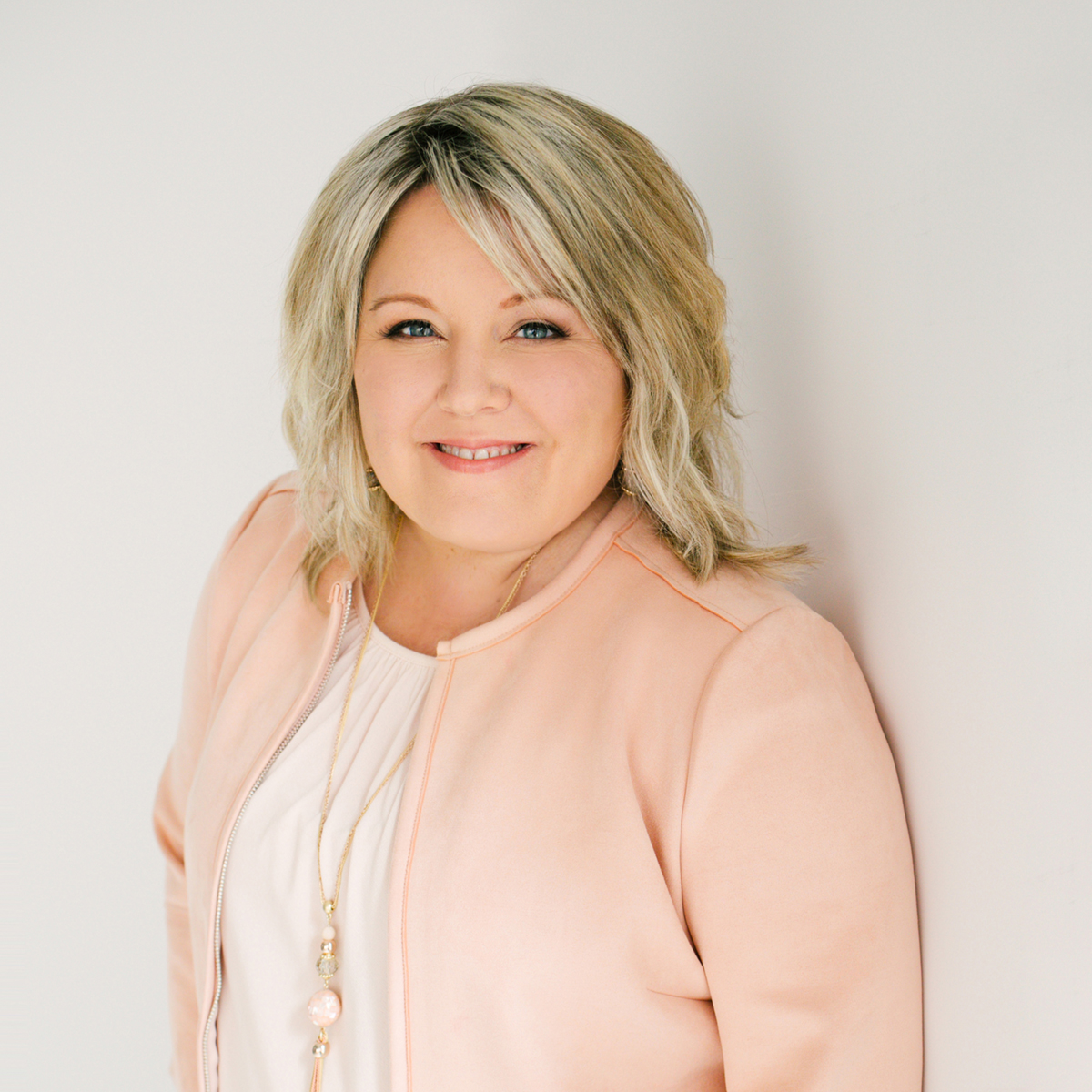Improving Your Sales Process with Nikki Rausch
Wanting to make more sales? Nikki Rausch shares her approach and philosophy for improving your sales process!
Listen to us On
About the Episode
LifeBlood: We talked about improving your sales process, how sales has changed and evolved over the years, the essential mindset for success, and how to create rapport and invite people to be a part of your process with Nikki Rausch, Founder and CEO of Sales Maven, coach, trainer, podcast host and author.
Listen to learn why assumption is the enemy of a good sales process!
You can learn more about Nikki at YourSalesMaven.com, Facebook, Pinterest, Instagram, YouTube and LinkedIn.
Thanks, as always for listening! If you got some value and enjoyed the show, please leave us a review wherever you listen and subscribe as well.
You can learn more about us at LifeBlood.Live, Twitter, LinkedIn, Instagram, YouTube and Facebook or you’d like to be a guest on the show, contact us at [email protected].

George Grombacher
Lifeblood Host

Nikki Rausch
Guest
Episode Transcript
george grombacher 0:00
Come on
blood This is George G and the time is right welcome. Today’s guest is strong and powerful Nikki Roche Nikki, how are you ready to do this? I am so ready. All right, let’s let’s go. Nikki is the founder and CEO of sales Maven. She’s a sales coach, a trainer, author, speaker and podcaster. She’s teaching her clients how to authentically move people through the selling process in a way that builds relationships, creates true connection and results in more close deals and long term clients. Miki, tell us a little about your personal life’s more about your work and why you do what you do.
Nikki Rausch 0:44
Well, I live in Boise, Idaho right now, which we were just saying, before we started this, it’s now cold. I lived in Seattle for 27 years, and I just moved back. And yeah, I’m getting I’m adjusting to the cold. Let’s say my business is sales Maven, I really focus on teaching people how to have more strategic sales conversations. So I specialize in the actual conversation where you’re communicating with somebody either live in person over the phone, or even via email, how do you move somebody through the process? And do it in a way that feels really good to you and feels really good to the buyer? Nice?
george grombacher 1:22
And what is it about sales that you like? Or how did you find yourself doing this?
Nikki Rausch 1:29
Well, I actually got my first professional sales job from a college project. So I’ve been in sales for now for over 25 years. And what I really love about it from a sales person’s perspective is the opportunity to really create your income, you know, you’re in charge of what you’re going to make. So coming from a very corporate background, I loved that I was never stifled, like I could always make more money by continuing to grow my business and the sales piece of it. I also really, really love relationships and conversation. So how can you deliver something in a way that feels really good to the other person? So it’s not about trying to convince people to buy your thing that they don’t need or want? It’s about understanding what’s going on for this person? And can you be of service to them. And I really have built my career on this idea of being of service. So that’s kind of what I love about sales.
george grombacher 2:34
Nice. So I started my sales career in 2001. And I was selling life insurance. And at that time, was literally, I don’t know, if people were actually selling life insurance on the internet. But the company I was with is like you can’t sell life insurance on online. So it was all, you know, face to face, belly to belly II kind of stuff. And now today, it’s obviously considerably different if not the opposite, because of the pandemic. Yeah, and I’m sure that, that you navigate online stuff, and just just really kind of everything. So how, how do you think about sales? Is it the same as it’s always been? Is it different?
Nikki Rausch 3:14
I think it’s different in that people are much more savvy. And I think people are more skeptical, right? Because you hear all the horror stories out there. So I think it’s crucial now that you really are able to build rapport with the other person. And that, you know, it isn’t about, I always say sales isn’t something that you do to people. And I think that was kind of the old style of selling is like go out there hunt the big game, you know, convince this person that if they don’t buy from you, their life’s gonna fall apart. And that isn’t really what sales is sales, actually something you do with people. And I think when you start showing up from this place of width, that this, this is a collaborative conversation. This isn’t about me forcing anything on you, it’s just me understanding Do you have a problem or a need or a want? Do I have a solution that meets that? If not, I’m going to bless and release be so glad that I met you move on with my day, I hope that you move on with yours. And yet, if there is something that I can offer to you in some way, then I feel like it’s my responsibility to at least put it in front of you. And I teach this as put it in front of people in the form of an invitation. Because most of us like to be invited to things even if we’re not going to go for instance, like somebody is going to have a holiday party or they’re gonna, you know, put on a block party or whatever it is, even if you’re like I probably wouldn’t go. It’s still nice to get the invitation. Right. And I think about sales in the same way is that if you have something that somebody might find value in, it is your obligation to issue that invitation and they can accept or decline and it doesn’t mean you’re a bad person or they’re a bad person if they decline it Just information. So make sure you’re inviting people make sure you’re making it so easy for people to take the next step with you.
george grombacher 5:09
I liked it, lots of really good stuff there. That’s something that I suffered with early on in my career, I felt like I was doing something to people and not for them, or to your point with them. So that’s a really, really important thing. And I like the language of blessing release a lot. And I love this idea about extending an invitation. So tell me a little bit. Can you give me an example? Or tell me more about that?
Nikki Rausch 5:31
Yeah. So for instance, let’s say that you meet somebody, and I’m just going to use life insurance cuz you brought it up, right? And somebody says, you know, oh, what do you do? And you set out, you know, I help people feel confident in you know, what’s going to happen as their life progresses, or whatever you say about that. And they go, oh, what does that mean? And you go, Well, there’s a life insurance policy, and they go, Oh, life insurance policy? Yeah, I don’t have one of those. So I would see that as a potential buying signal, I would say, is that something you’d be interested in chatting more about? That’s an invitation. Got it? And then if they say, yes, then I’m gonna say, you know, well, let me ask you some questions and find out what’s important to you and see if we have a plan that would make sense for you. And then I’m going to ask him some questions. Find out what like what the plan would be. And then I would say, you know, I do have an idea of a plan that would be a good fit for you. Is it okay, if I tell you a little bit about that? Notice, I’m issuing an invitation again, I’m also asking permission as well. I never go into hard sell mode, like, Oh, you don’t have life insurance, you should buy one you here’s what you should buy. And you know, it’s like no, wait, like, get these yeses along the way. Make sure people are in issue invitations, let them say yes or no. Because frankly, if the if their answer is no, if you say, Well, would you be interested in talking more about that? And they go? No, you don’t want to be the person who didn’t like Miss that step and was like, Oh, well, you need a life insurance policy. Everybody needs one. And here’s what you should buy. Because now what you’ve done is you’ve broken rapport with them, you didn’t, you didn’t have their permission, there was nothing about them that indicated they were interested in hearing your offer. So chances are even if they do decide to buy a life insurance policy, they’re probably not going to buy it from you.
george grombacher 7:19
Why do people resist this? And if they do? Or if, once they know, do they continue to resist and and maybe why?
Nikki Rausch 7:31
I think the biggest thing is that we all don’t like to be judged, right? Like who wants to be judged? And it’s harsh judgment out there, like we’re all used to, you know, oh my gosh, be careful what you post online or be careful what you say, because somebody is gonna come at you. And so I think it’s this idea of judgment. One, like, oh, people are gonna judge me. Now, the thing that I teach around sales is that you cannot be focused on you. You cannot be focused on what are they thinking about me? And are they okay with me? It’s like, no, be focused on the other person. And are they comfortable? Do they feel good about this conversation? Are they engaged in the conversation? Because then when you take yourself out of it, it takes some of that pressure off about like, the judgment. And then the other thing, the big thing, which I feel like everybody talks about this in sales is this fear of rejection? Like, oh, my gosh, what if they say no, to me, I’m gonna feel so rejected. And the idea that I often give or this story I’ll say is, you know, imagine that you go out to a restaurant and you have an amazing meal. And at the end of the meal, the waiter comes by and says, you know, can I show you the dessert menu? And you say, oh, maybe next time, I can’t possibly today, I’m so full, no, so great. You know, the waiter doesn’t go back to the kitchen and be like, can you believe abroad? She rejected me. I offered her dessert. She said, No, you know, like the. So I think when you start looking at sales is like, it’s just an invitation. You can look at the dessert menu or not, and you can decline and the relationship can still be intact, then I think the pressure comes off of a no isn’t rejection. Sometimes it’s a not yet. And sometimes it is a no, but it’s not like you’re a bad person or you did something wrong. It’s just information move on.
george grombacher 9:27
So maybe I should change my approach, because I’ve always said yes to dessert, just
Nikki Rausch 9:34
hey, I like dessert.
george grombacher 9:36
Please show me out of fear of rejecting the server. I just, I just I’ve never wanted to do that. So
Nikki Rausch 9:45
never want to reject the server. And also, isn’t it still nice like, if the server doesn’t offer you the dessert menu, right? Like if you’re the customer and the does, and they don’t even offer to show you the dessert menu. They just bring you the check. Don’t you sometimes feel A little bit like, Excuse me, maybe I want dessert tonight, right? So it’s the same thing with sales. If you don’t offer to other people, they walk away, or they leave the restaurant going, like, wow, they didn’t even want like, it’s like, they just wanted me out of there. They just wanted the table turned, that doesn’t feel good. So when you don’t offer people the opportunity to work with you, they leave feeling like you didn’t even offer them the dessert menu. How dare you?
george grombacher 10:29
Yeah, what a what a great way to look at that. And, and, and, and to think about it, right? This waiter think that I’m overweight, and I shouldn’t have dessert or something like that. Or just George think I’m broke. And I can’t afford insurance. You know, he didn’t even ask if I wanted to buy.
Nikki Rausch 10:45
Yeah, yeah, people make up stories, because we think the whole world revolves around us, right? Like, everything that happens is happening for me, to me against me. So you’re thinking about how they’re thinking about you, but they’re actually thinking about how you’re interacting with them. And if you don’t invite people, they walk away, and they make up a story like, oh, Nikki doesn’t think I can afford her services, or Nikki doesn’t think I’m the right kind of client or Nikki doesn’t think I can learn how to sell. I never want people to walk away feeling like any of those things with me.
george grombacher 11:16
Did anybody learn how to sell? Yes,
Nikki Rausch 11:19
I think so. I think there’s a structure i This comes from my background in neuro linguistic programming, there’s a structure to excellence. And this is why I teach a lot of structure around sales. So it isn’t that I’m not giving you a script like you say this, they say that then you say this, I do like scripts, but I like them, for example standpoint. I like structure. If you can teach people structure, they can implement it and get results. So you get to show up, be you Be your authentic self in the conversation. But understand, where am I in the conversation? What’s the next logical step? Did they give me a buying signal? Should I issue an invitation? Did Did they decline? Should I check to see if there’s an objection there that I could possibly uncover overcome those types of things or structure? So I love structure? Because I think once once you know the steps, you can follow them. Right? That’s how I feel about sales.
george grombacher 12:18
Yeah, I appreciate that very much. Having structure allows you to show up more authentically as yourself. I think that that maybe people just don’t that that that hasn’t really clicked for people necessarily, they probably sometimes think that they think it’s the opposite.
Nikki Rausch 12:35
Yeah, because they think, Oh, well, you’re either good at sales, or you’re not, you either have that natural charisma, or you don’t. But the thing about it is the way that people get really, really good, the way people hone their skills, is practice and structure, right? Like whether you’re, you know, an athlete, or whether you are in business, learning how to have a structure, so that you can do it over and over and over again, that’s how you build that muscle memory. It’s like, you know, a pitcher that’s on the mound, they don’t just go out there and wing it, like they know what is what does my body have to do? What position Am I in, in order to throw that ball in order to hit that target, you know, to hit the strike zone, or whatever that is? There’s practice involved. So structure is super important. The best athletes have it. The best performers have it. It’s structure like, you know, even if you’re a musician, you don’t necessarily go on and just go like, I’m gonna wing it tonight. No, you have a playlist, you know what you’re gonna play before you go on stage?
george grombacher 13:37
Yeah, yeah. And certainly the Beatles are just a perfect example. Right. They practiced and practiced and practiced more than any, perhaps still human beings have ever practiced music. And so it’s not just that they were super talented, but they were absolute consummate musicians who put in so much time and so many hours to to perfect their craft. So yeah, I think that that’s, that’s, that’s another great example. And just how do you hope to get better anything unless you understand the framework of whatever the technical skill is, and then you just need your repetition to be able to get more comfortable? And as things get thrown at you, then you’ll be able to handle it?
Nikki Rausch 14:16
Yeah. Because then, you know, it’s, it’s like, you’ve got that confidence. It’s like, where’s my center, I can always go back to center. And if I get a little shaken or something happens, like, oh, I can go back to where I’m at, like, I know where my center is, my whatever that is for you, whether it’s your balance, whether it’s your just your process, your structure, your framework. So I love the idea again, structure framework. This is why I teach you know, I teach a structure that’s called the selling staircase. I wrote a book about it. And it’s this five step process and when you understand where you are, what step my and then you know how to move to the next step. And or identify, I’m not talking to an ideal client, so it’s okay to bless and release in this particular moment. So all These things are just this, like you said, repetition. It’s super important to continue to hone your your craft hone your skill, everything that you’re really good at today. You didn’t just wake up and like know how to do you practiced?
george grombacher 15:14
Do you ever hear? But this, this won’t work for what I do?
Nikki Rausch 15:18
Yes. People Jose will Nikki, have you ever sold? You know this? Like, how can you help people? And I always say, like my answer is, if you are selling to people, and not just selling like through a website, like not through a shopping cart, yes, I can help you. Because it’s about conversation. It’s about relationship. And that means we’re poor has to be built. And you have to understand where you are in the conversation in order to move somebody to the next step in the process.
george grombacher 15:50
It’s that whole world revolves around me kind of a thing where what I do is so unique that there’s no way no way that’s a snowflake. Yes. Yes. And while that’s true, yeah. And perhaps you’re already getting the results you’re looking for, so that this is not a good fit. But if you are not, you probably need to look to let’s do a diagnosis of of what your process is. What are you saying to people? Is it the same every time? Or are you just sort of flying by the seat of your pants and trying out different stuff?
Nikki Rausch 16:23
Yeah, yeah. I mean, I’m somebody who, you know, I can wing it in a lot of areas of my life too. But again, when I know where my center is, where I know where my structure is, it helps me come back and get centered when things don’t go the way I want them to, or when the conversation gets, you know, there’s a hiccup or something, something happens, being able to go back to, oh, I know what to do. Now, I know, I have some confidence around what I could say, because I’ve practiced because I’ve, I’ve been in these situations before, you know, as unique as each conversation can be with each potential client, there still some like, common things that happen in every sales conversation, right? Somebody is going to ask about price, somebody’s gonna have to find out what’s the problem with the need, like there are some common things. And when you start to just get more confident around what’s going to happen, then the sales process again, not only does it get easier for you, it gets so much easier for the buyer. And people like easy and if you make it easy for people to buy from you, they will.
george grombacher 17:33
Amen. Nikki, people are ready for your difference making tip. What do you have for them?
Nikki Rausch 17:38
Okay. Well, I’m gonna say my difference making tip I probably said it now, you know, 18 times is invite people. If you’re not getting the words out of your mouth, if you’re not issuing those invitations, chances are people don’t even know what to do with you next, they don’t know what the next step is. Don’t assume that, oh, if they want to buy from me, they’ll let me know they will not. You have to put the decision in front of them. And the way you do it is through an invitation. Just say, is that something you’d like to learn more about? Or is that something you’d like to do together? Or is that something you’d like to place an order for? Those simple questions will make a big difference in your business?
george grombacher 18:19
Well, I think that is great stuff that definitely gets caught. Yes. i And I think that we all fall victim of of doing that. Well, so and so knows what I do already. I don’t you know, they already know if they’re interested, then then then they’ll just ask me No, wrong. Wrong.
Nikki Rausch 18:39
Wrong. Yeah.
george grombacher 18:41
What a good thank you so much for coming on. Where can people learn more about you? How can they engage with you?
Nikki Rausch 18:45
Well, the easiest way is I’m going to wrap it around a gift for your audiences. That’s all right, this is. So I’m going to wrap it around an ebook that I have that’s called closing the sale. And it talks about the last three steps of the selling staircase that I’d mentioned. It’s all about building your confidence in those conversations. You can get it by going to your sales Maven, and it’s ma v n.com. Forward slash lifeblood. So your sales maven.com forward slash lifeblood, and then we’ll be connected. And you mentioned at the beginning, I also have a podcast if you want to check it out. It’s called sales Maven. I’d love to hear from a listener what was their takeaway from today or what was something I said that sparks something for them.
george grombacher 19:27
If you enjoyed this as much as I did, so Nick your appreciation and share today’s show with a friend who also appreciates good ideas pick up a copy of Nikki’s ebook closing the sale by going to your sales Maven, what your sales ma ve n.com/lifeblood Pick up a copy of that check out her podcast, sales Maven podcast, and I’ll list all those in the notes of the show. Thanks again, Nikki. Thank you. And until next time, keep fighting the good fight. We’re all in this together.
Transcribed by https://otter.ai
More Episodes
Graphic Design with Ian Bower
Graphic Design with Ian Bower We tend to commoditize graphic design and think about it in silos. Ian Bower talks about the risks associated with that approach and how to become better consumers of this essential component of our businesses!About the EpisodeLifeBlood...
Financial Compliance Services with Todd Cipperman
Financial Compliance Services with Todd Cipperman With new financial products like crypto assets and blockchain coming online all the time, how do they interact with regulatory compliance? Todd Cipperman breaks down the compliance landscape and talks about how to get...
Savoring Life with Benita Conde
Savoring Life with Benita Conde Do you feel like you're on a never-ending hamster wheel, chasing success and never finding fulfillment? Benita Conde talks about how that's an all too common experience and what to do to break free and start savoring life!About the...
Gold Royalty Companies with Fred Bell
Gold Royalty Companies with Fred Bell Thinking about investing in gold, but want a diversified approach? Fred Bell shares his expertise into gold royalty companies and how they could be what you're looking for! About the EpisodeLifeBlood: We talked about gold royalty...
Book Club featuring Mike Michalowicz
Book Club featuring Mike Michalowicz On this edition of our Book Club, Mike Michalowicz, creator of Profit First Professionals, talks about his newest book Get Different: Marketing that Can't Be Ignored! About the EpisodeLifeBlood: We talked about Mike’s newest book...
Know your Worth with Robin Waite
Know your Worth with Robin Waite Are you charging what you're worth for the work you do? Robin Waite talks about how far too many of us undercharge because of fear of rejection and shares an actionable process for breaking through and earning what you're worth!About...
What is True with Udo Erasmus
What is True with Udo Erasmus What would you do if you found out everything you ever needed to know in order to be happy and to have the life you wanted was already inside you? Udo Erasmus talks about how that's true for all of us and how to go about tapping into it!...
Tax Strategy with Shauna Wekherlien
Tax Strategy with Shauna Wekherlien Did you know the IRS issues around three tax code updates every day? Shauna Wekherlien talks about tax strategy, the importance of being proactive and how to do it! About the EpisodeLifeBlood: We talked about tax strategy, the...
Knowing your Worth with Christine Hansen
Knowing your Worth with Christine Hansen Are you charging the amount you deserve? Christine Hansen talks about how knowing your worth can make a massive difference in your life and how to figure it out! About the EpisodeLifeBlood: We talked about knowing your worth,...
Join the show.
Interested in being on the show? Tell me a little bit more about you and what you’d like to talk about!









